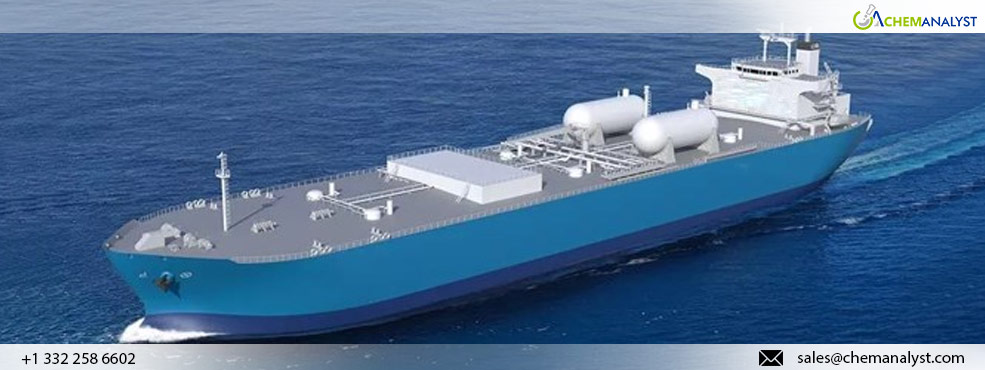Welcome To ChemAnalyst

Mitsui O.S.K. Lines, Ltd. (MOL), Kawasaki Kisen Kaisha, Ltd. ("K" LINE), Nihon Shipyard Co., Ltd. (a joint venture between Imabari Shipbuilding Co., Ltd. and Japan Marine United Corporation), Nippon Yusen Kabushiki Kaisha (NYK Line), Mitsui & Co., Ltd., Mitsubishi Corporation, and Mitsubishi Shipbuilding Co., Ltd. (part of Mitsubishi Heavy Industries) have collectively received Approval in Principle (AiP) from the American Bureau of Shipping (ABS) and Nippon Kaiji Kyokai (ClassNK) for two types of low-pressure liquefied CO2 (LCO2) carriers they are jointly developing. The announcement was made during a presentation ceremony held on September 17 at the George R. Brown Convention Center, which hosted Gastech 2024, a prominent international conference addressing global energy and environmental topics, including natural gas, liquefied natural gas (LNG), and hydrogen, in Houston, Texas.
The demand for LCO2 carriers is anticipated to rise alongside various Carbon Capture and Storage (CCS) projects that involve transporting CO2 captured in Japan to overseas storage sites. Recently, Mitsubishi Shipbuilding, Nihon Shipyard, Mitsui & Co., and Mitsubishi Corporation have joined forces to standardize LCO2 carriers for use across multiple projects and to create a supply chain that enables the consistent construction and delivery of these carriers within Japan. This collaboration aims to enhance the economic efficiency of CCS value chains. As a result of these efforts, the partners have secured two AiPs in conjunction with three major Japanese shipping companies: "K" LINE, MOL, and NYK Line.
The two LCO2 carriers that obtained AiP certifications are low-pressure vessels of 50,000 m³ and 23,000 m³ classes, designed for long-distance ocean transportation. The certifications include the use of suitable cargo tank materials instead of the previously considered nickel steel. Furthermore, the Engineering Critical Assessment (ECA) approach allows for the potential elimination of post-welding heat treatment (PWHT), addressing a key challenge in cargo tank manufacturing.
The MOL Group Vision aims to expand into various social infrastructure sectors beyond traditional shipping, addressing evolving societal needs, including environmental conservation, through innovative technologies and services.
The CCS/CCUS business aligns with the MOL Group Vision and supports the expansion of non-shipping initiatives outlined in the BLUE ACTION 2035 management plan. It is also a key strategy in the MOL Group Environmental Vision 2.2, which aims to "expand low-carbon and decarbonized businesses by leveraging the group’s collective strengths." By engaging in the CCS/CCUS value chain, the MOL Group is committed to contributing to sustainable societal development, preserving nature, and enhancing the quality of life, while also ensuring a prosperous future. This includes expanding operations both upstream and downstream, acquiring projects, and accelerating development within the value chain.
We use cookies to deliver the best possible experience on our website. To learn more, visit our Privacy Policy. By continuing to use this site or by closing this box, you consent to our use of cookies. More info.
